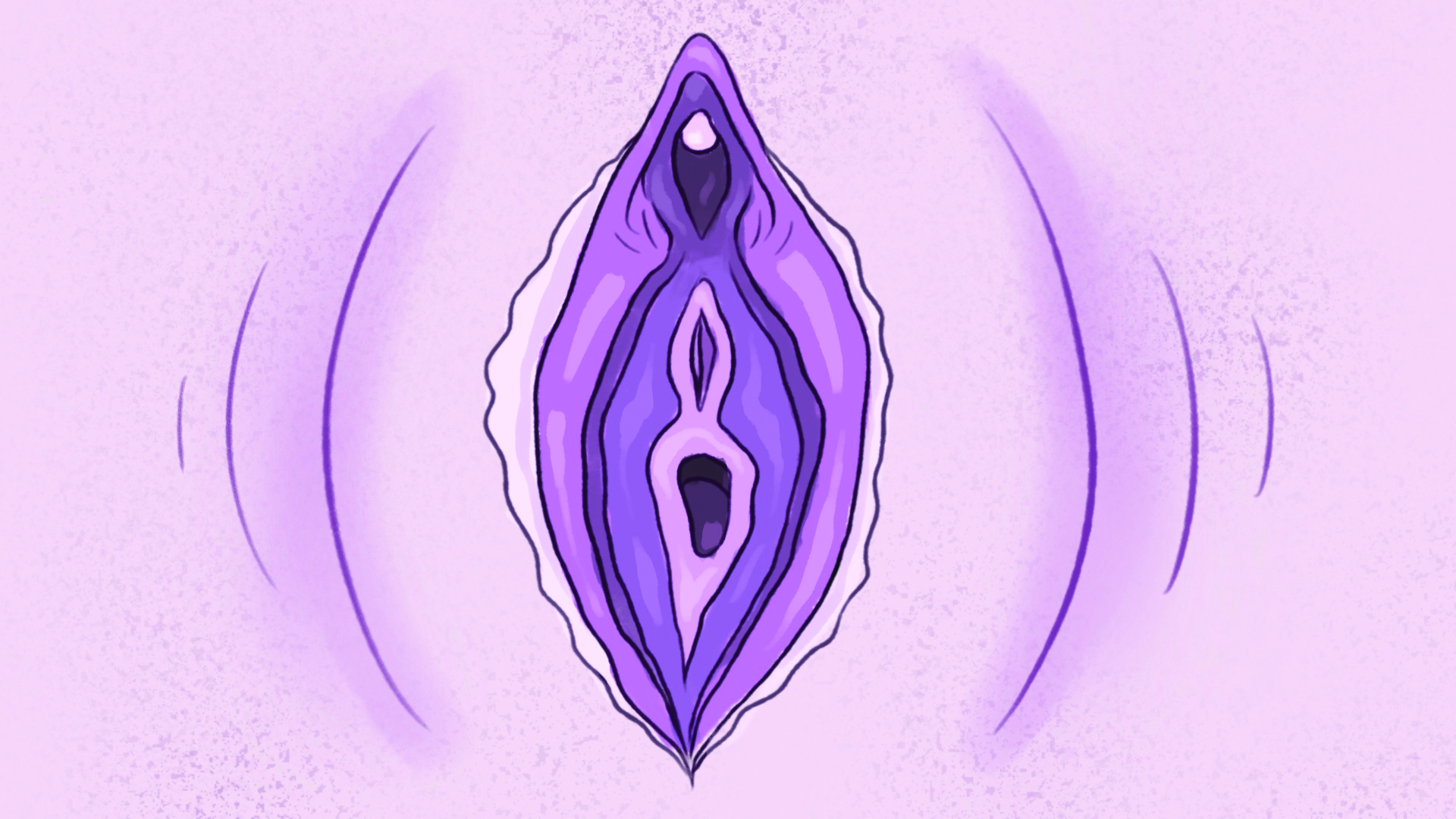Content warning: This article mentions rape and female genital mutilation.
At 13, I became aware of a monster in the shape of an inverted rotten strawberry that was on me. Rather, it was in me. It had always been there, hiding inside of me, waiting to fold out, get dressed up, and present itself when I spread my legs in front of my bedroom mirror. I really became aware of this monster when I learned about it in health class.
I was worried about my vagina. To quote V, formerly named Eve Ensler and writer of the 1996 play The Vagina Monologues, “We were worried about vaginas.”
The Vagina Monologues is the opposite of the health class that revealed my monster. V’s theatrical baby is a play that features the experiences of over 200 people — all involving their vaginas. In a monologue called “Hair,” a woman learns to accept her pubic hair despite her husband’s wishes to remove it. Another monologue focuses on having your first orgasm at 72 — it’s appropriately named “Flood.” In “The Vagina Workshop,” the clitoris is even compared to a semi-automatic gun. V’s monologues never paint the vagina as a monster, a rotten strawberry, or an organ. In The Vagina Monologues, the vagina is a place for pleasure, not shame.
My favourite monologue is about vaginas getting dressed up, in which people are asked what their vagina would wear if it were a person. Someone’s vagina wears a taffeta ball gown, another person’s vagina wears jeans. I use this fun mind exercise whenever I feel particularly dry — my vagina can’t be a monster when she puts on a wool cardigan.
V’s work is seminal because so much of it remains relevant today, nearly 20 years later. The play was written with the hope of ending violence against those with vaginas. This was evident in monologues like “Reclaiming Cunt,” in which a woman celebrates that she has a cunt. This message is essential in a world where ‘vagina’ feels like a dirty word. ‘Vagina’ doesn’t feel like a dirty word to me, but that’s because I’ve written it 17 times in this article already.
Beyond the pro-vagina movement that came from her play, V has also impacted people through her foundation, V-Day. V-Day is a global activist movement that aims to end violence against cisgender and transgender women, those who hold fluid identities, and nonbinary people. So far, V-Day has raised over 120 million USD.
But, despite all of its successes, parts of The Vagina Monologues have aged. Many of the play’s monologues equate womanhood with vaginas and exclude transgender and nonbinary people.
V has also come under fire for showcasing a colonial perspective through her work. The monologues employ mostly white actors to depict the characters in the play. The stories of non-white characters are almost exclusively about sexual violence. While people of colour are disproportionately affected by sexual violence, women of colour appearing only in the monologues when talking about sexual violence sends a completely different and harmful message.
For example, in the monologue “My Vagina was my Village,” Bosnian women describe war rape. Another monologue, “Not-So-Happy-Fact,” represents genital mutilation, particularly mentioning incidents of the practice in Africa. A white woman writing about non-white women in violent contexts in a play, which otherwise discusses vaginal pleasure, limits women of colour to the crimes committed against them.
The Vagina Monologues is not perfect. But our society can still use parts of it as a tool to normalize its love for vaginas. Many of us have experiences with, opinions about, or even just fantasy outfits for our vaginas — so why is it taboo to express that to the world?
In 2020, the University of Pennsylvania invited students to submit their own vagina monologues to be performed. The show included 23 original monologues that focused on various experiences with vaginas. The core values that V promoted remained the same; however, more people got to enjoy the feeling of hearing how pleasurable their vagina is.
We should embrace the joy, shock, and boldness of The Vagina Monologues. We should use its shortcomings to create better ones in the future and across college campuses. Life is not a health class — your monster vagina is yours to dress up and enjoy.


